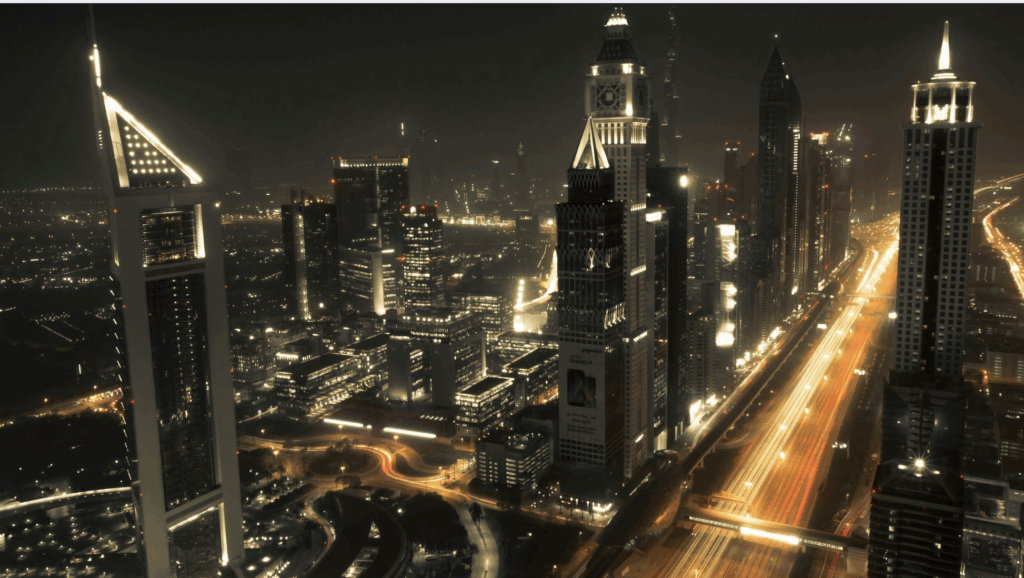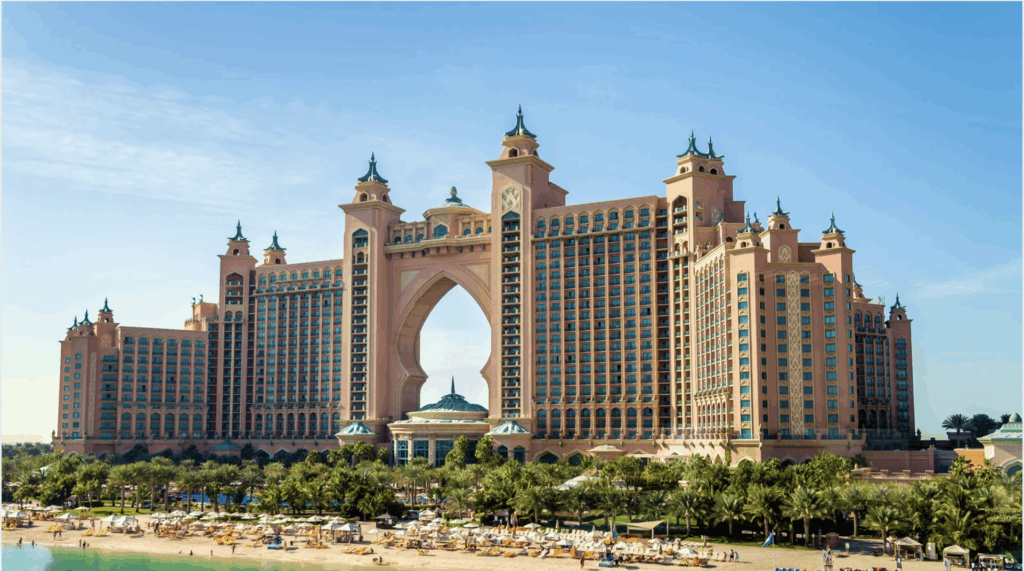Table of Contents
Dubai stands out as one of the most unique cities in the world. With ultramodern skyscrapers, a luxurious lifestyle, and high safety standards, it’s a top destination for expats. Over 80% of its population is foreign nationals, making Dubai a global melting pot. It’s a dynamic place for professionals, entrepreneurs, and families.
Before relocating, it’s crucial to understand the local lifestyle, visa rules, cost of living, and cultural nuances. This guide provides a detailed look at what to expect when living in Dubai.
Why Move to Dubai? Key Benefits for Expats

1. Advanced Infrastructure
Dubai features cutting-edge infrastructure. The city has a high-speed metro, Dubai International Airport (the busiest globally for international travel), efficient public transport, and sleek government services.
2. Remarkable Safety
Dubai is one of the safest cities worldwide. Crime rates are extremely low, allowing residents to feel secure at all hours. Walking alone at night is common and generally safe.
3. Zero Income Tax
Expats enjoy tax-free income. Unlike many Western countries, the UAE does not levy personal income tax. This structure helps individuals save a larger portion of their earnings.
4. Long-Term Residency Programs
The UAE Golden Visa allows long-term stays for investors, entrepreneurs, and skilled professionals. Other options include standard residency visas tied to employment or business ownership.
5. Diverse Expat Community
Dubai’s international population ensures that newcomers quickly find their place. Professionals from Europe, Asia, and beyond live and work here, making it easy to build connections.
Challenges of Life in Dubai

1. Expensive Living
Dubai’s cost of living is high. Rent for a one-bedroom apartment in upscale areas like Downtown or Dubai Marina can exceed $5,000 monthly. Dining out and buying imported groceries also adds up.
2. Cultural Differences
Dubai is more liberal than many Middle Eastern cities, but Islamic customs shape public life. Alcohol is allowed only in licensed places. Public affection is discouraged, and respecting local laws is vital.
3. Extreme Summer Heat
From May through September, temperatures often exceed 40°C (104°F). Many expats travel during these months to avoid the oppressive heat.
4. No Path to Citizenship
Residency doesn’t lead to Emirati citizenship. Even after many years, citizenship remains rare. However, long-term stays are possible through visa renewals.
Best Time to Live in Dubai

The most pleasant months are between October and April. During this time, temperatures stay between 24°C and 30°C (75°F to 86°F), perfect for outdoor activities.
The summer months are less favorable due to the extreme heat and occasional sandstorms. These months are less popular for tourists and newcomers alike.
Best Neighborhoods for Expats in Dubai
Dubai offers various neighborhoods to suit different lifestyles. Here are some top picks:
Downtown Dubai
This area is home to landmarks like the Burj Khalifa and Dubai Mall. It features luxury apartments and a vibrant city atmosphere.
Dubai Marina
Dubai Marina is popular with young professionals. It offers waterfront views, modern amenities, and plenty of nightlife options.
Palm Jumeirah

Palm Jumeirah is perfect for those wanting a resort-style life. It offers beachfront villas, upscale apartments, and private clubs.
Jumeirah Lake Towers (JLT)
JLT is budget-friendly and ideal for families. It’s close to business districts and offers green spaces and schools.
Emirates Hills and Arabian Ranches
These gated communities are best for families looking for spacious homes and nearby international schools.
Living Costs in Dubai
Dubai’s living costs vary by lifestyle. Here’s a basic overview:
- Housing: $5,000+ for a one-bedroom apartment in central areas.
- Utilities: High, especially in summer.
- Groceries: Often expensive due to imports.
- Dining: Restaurants and alcohol are costly.
Despite high expenses, the lack of income tax helps residents retain more of their salary.
Education Options for Expats
Families have access to many international schools offering British, American, or IB curriculums.
Highlights:
- Tuition can be expensive.
- Schools often follow UK or US academic calendars.
- Advance registration is advised due to limited seats.
Most schools are private and offer high-quality education tailored to expat needs.

Healthcare in Dubai
Dubai’s healthcare system is top-notch. Expats generally use private hospitals and clinics covered by international or employer-sponsored insurance.
An Emirates ID is necessary to access most healthcare services.
Getting Around Dubai
Dubai is well-connected both locally and internationally:
- Air Travel: Dubai International Airport leads in global passenger traffic.
- Public Transport: Includes a metro system, buses, and taxis.
- Driving: Many expats drive, but rush hour can bring congestion.
- Banking: Global and local banks offer convenient international transfers.
Legal and Cultural Awareness

Dubai is part of the UAE and follows Islamic law. While tolerant, the city has strict rules:
- Public intoxication and disrespecting religious norms are prohibited.
- Always carry your Emirates ID.
- Know the laws related to employment and renting property.
Understanding and respecting these laws is critical to avoid fines or legal issues.
Is Dubai Right for You?

Dubai offers a modern, tax-friendly lifestyle with plenty of amenities. It attracts professionals and families seeking opportunity, safety, and international connections.
Still, it’s important to plan carefully. Understand the legal landscape, cultural expectations, and financial commitments before making the move.
At Emifast, we simplify the relocation process. From visa assistance to property advice, we provide customized support to ensure a smooth transition.
Ready to start your Dubai journey? Get in touch with our experts today.